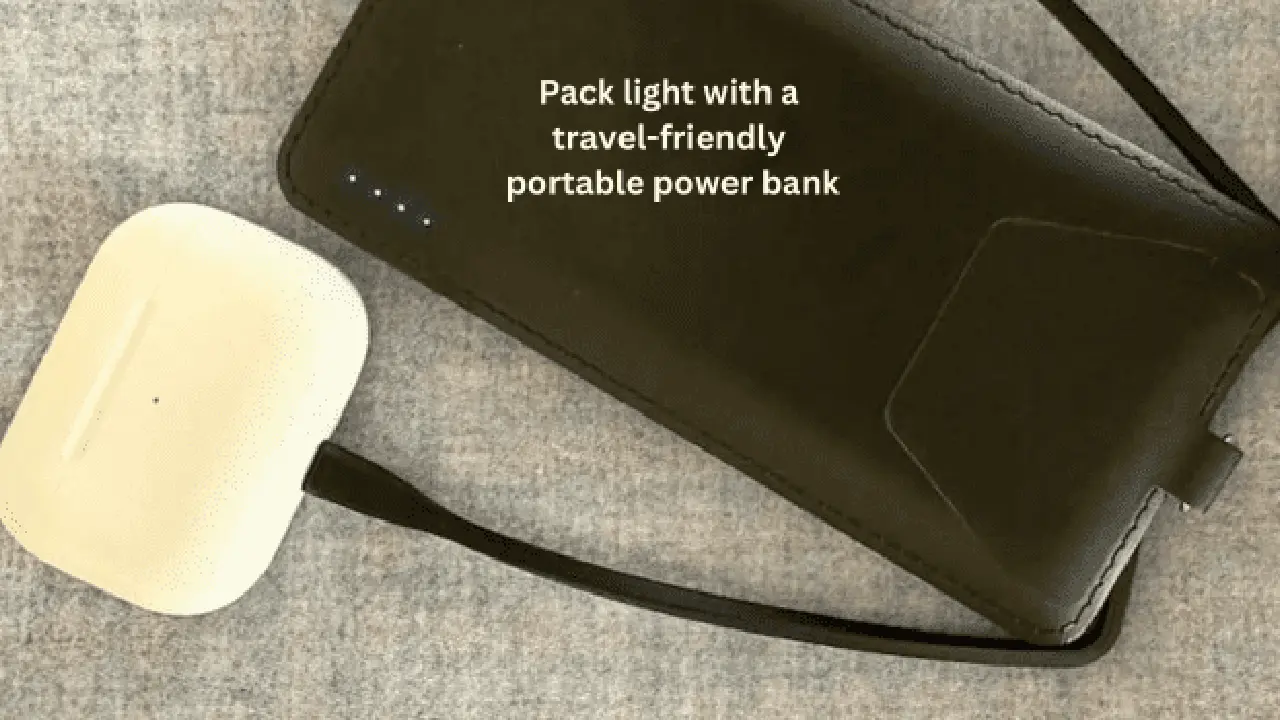Solo Female Travel Safety Tips
Travel responsibly and minimize your environmental impact with sustainable travel practices. We share tips on reducing waste, supporting local businesses, and respecting local cultures. Be a conscious and responsible traveler.

Understanding Sustainable Travel Why It Matters
Hey adventurers! Ever thought about the impact your travels have on the planet and the local communities you visit? Sustainable travel isn't just a buzzword; it's about making conscious choices to minimize your footprint and contribute positively to the places you explore. It's about preserving the environment, respecting local cultures, and supporting local economies. Basically, it’s about ensuring that future generations can enjoy these amazing destinations just as much as we do. Ready to dive in?
Reducing Your Carbon Footprint Travel Tips
One of the biggest impacts we have as travelers is our carbon footprint, primarily from transportation. Here’s how to shrink it:
- Fly Less: Okay, this might sound obvious, but consider taking fewer flights and opting for longer stays in one place. If you must fly, choose direct flights as they burn less fuel than connecting ones.
- Eco-Friendly Transportation: Once you’re at your destination, ditch the rental car whenever possible. Use public transport like buses, trains, or trams. Better yet, rent a bike or walk! Not only is it better for the environment, but you'll also get a more intimate experience of the place.
- Pack Light: The heavier your luggage, the more fuel the plane needs to burn. Pack only the essentials and choose lightweight gear.
- Offset Your Carbon Emissions: Many airlines and travel companies offer carbon offsetting programs. While it's not a perfect solution, it's a step in the right direction.
Minimizing Waste Eco-Friendly Travel Gear
Single-use plastics are a major problem, especially in tourist hotspots. Here’s how to reduce your waste:
- Reusable Water Bottle: Invest in a durable, reusable water bottle. The Nalgene Tritan 32 oz. bottle is a classic choice, known for its durability and wide mouth. It costs around $12.95. Alternatively, the Hydro Flask 32 oz Wide Mouth ($44.95) keeps your water cold for hours, perfect for hot climates. Consider a LifeStraw Go Series bottle ($39.95) with a built-in filter for destinations with questionable water quality. It's great for hiking and camping.
- Reusable Shopping Bag: Carry a lightweight, foldable shopping bag. The BAGGU Standard Baggu ($14) is a popular, stylish, and durable option. It folds up small and can hold a lot of weight.
- Reusable Cutlery and Straw: Pack a set of reusable cutlery and a straw. The Portable Utensil Set with Case ($10-20) includes a fork, spoon, knife, and chopsticks in a compact case. For straws, consider FinalStraw ($24.50), a collapsible, reusable straw that's easy to carry around.
- Refillable Toiletries: Instead of buying travel-sized toiletries in plastic bottles, invest in refillable containers. The humangear GoToob ($7.99 each) are leak-proof and easy to squeeze. Fill them with your favorite shampoo, conditioner, and body wash.
- Say No to Single-Use Plastics: Politely decline plastic straws, bags, and cutlery whenever possible.
Supporting Local Businesses and Communities Ethical Travel
One of the best ways to contribute positively to a destination is by supporting local businesses and communities. Here’s how:
- Eat Local: Dine at locally owned restaurants and cafes. Try the authentic cuisine and support local farmers and food producers.
- Shop Local: Buy souvenirs and crafts from local artisans and markets. Avoid buying mass-produced items that don't benefit the local economy.
- Stay Local: Choose locally owned guesthouses, hotels, or homestays. This ensures that your money stays within the community.
- Hire Local Guides: Opt for local tour operators and guides who have a deep understanding of the area and its culture. They can provide unique insights and experiences.
- Respect Fair Prices: Bargaining is common in some cultures, but always be respectful and fair. Remember that a small amount of money to you can make a big difference to a local vendor.
Respecting Local Cultures Cultural Sensitivity
Being a responsible traveler also means respecting local customs, traditions, and beliefs. Here’s how to be culturally sensitive:
- Do Your Research: Before you go, learn about the local culture, customs, and etiquette. This will help you avoid unintentional offenses.
- Dress Appropriately: Dress modestly, especially when visiting religious sites. Cover your shoulders and knees when required.
- Learn Basic Phrases: Learning a few basic phrases in the local language shows respect and can enhance your interactions with locals.
- Be Mindful of Your Behavior: Avoid loud or disruptive behavior, especially in quiet or sacred places.
- Ask for Permission: Always ask for permission before taking photos of people or entering private property.
- Respect Local Laws and Regulations: Familiarize yourself with local laws and regulations and abide by them.
Choosing Eco-Friendly Accommodations Sustainable Hotels and Lodges
Where you stay can also make a big difference in your environmental impact. Look for accommodations that are committed to sustainability:
- Eco-Certifications: Look for hotels and lodges with eco-certifications like LEED, Green Globe, or B Corp. These certifications indicate that the property meets certain environmental and social standards.
- Energy Efficiency: Choose accommodations that use renewable energy, conserve water, and have energy-efficient lighting and appliances.
- Waste Reduction: Look for properties that have recycling programs, compost food waste, and avoid single-use plastics.
- Sustainable Practices: Ask about the property's sustainable practices, such as sourcing local and organic food, supporting local communities, and protecting biodiversity.
Responsible Wildlife Tourism Ethical Animal Encounters
If you're planning to see wildlife, do it responsibly. Avoid activities that exploit or harm animals:
- Choose Ethical Tours: Opt for wildlife tours that prioritize animal welfare and conservation. Avoid tours that involve riding elephants, swimming with dolphins, or interacting with captive animals.
- Observe from a Distance: Keep a safe distance from wildlife and avoid disturbing their natural behavior.
- Support Conservation Efforts: Choose tour operators that contribute to local conservation efforts and support research and education programs.
- Report Illegal Activities: If you witness any illegal activities, such as poaching or wildlife trafficking, report them to the appropriate authorities.
Water Conservation Travel Tips
Water is a precious resource, especially in arid or drought-prone regions. Here’s how to conserve water while traveling:
- Take Shorter Showers: Limit your shower time and turn off the water while soaping up.
- Reuse Towels and Linens: Hang up your towels to dry and reuse them. Opt out of daily linen changes.
- Report Leaks: If you notice any leaks in your room, report them to the hotel staff immediately.
- Be Mindful of Water Use: Avoid wasting water when brushing your teeth or washing dishes.
Supporting Local Conservation Projects Giving Back
Consider volunteering or donating to local conservation projects. This is a great way to give back to the communities you visit and make a positive impact:
- Volunteer Opportunities: Look for volunteer opportunities in areas like wildlife conservation, environmental restoration, or community development.
- Donations: Donate to local charities or conservation organizations that are working to protect the environment and support local communities.
- Pack for a Purpose: Pack essential supplies for local schools or communities in need. Pack for a Purpose is a great organization that connects travelers with local projects.
Staying Informed and Educated Continuous Learning
Sustainable travel is an ongoing learning process. Stay informed about the latest environmental and social issues and continue to educate yourself:
- Read Travel Blogs and Articles: Follow travel bloggers and publications that focus on sustainable travel.
- Attend Workshops and Seminars: Attend workshops and seminars on sustainable travel to learn more about best practices and emerging trends.
- Engage in Discussions: Participate in online forums and discussions about sustainable travel to share your experiences and learn from others.
Recommended Products for Sustainable Travel
Here are a few more specific product recommendations to help you on your sustainable travel journey:
- Sunscreen: Choose reef-safe sunscreen like Stream2Sea ($17.95). Traditional sunscreens contain chemicals that can harm coral reefs.
- Shampoo Bars: Shampoo bars are a great alternative to liquid shampoo in plastic bottles. Ethique offers a wide range of shampoo and conditioner bars ($15-20).
- Bamboo Toothbrush: Switch to a bamboo toothbrush. Brush with Bamboo offers sustainable and biodegradable toothbrushes ($5-7).
- Reusable Food Wraps: Use reusable food wraps like Bee's Wrap ($18 for a set of three) instead of plastic wrap.
So, there you have it! Sustainable travel isn't about being perfect; it's about making conscious choices and striving to do better. Every small step you take can make a big difference in preserving the planet and supporting local communities. Happy travels!
:max_bytes(150000):strip_icc()/277019-baked-pork-chops-with-cream-of-mushroom-soup-DDMFS-beauty-4x3-BG-7505-5762b731cf30447d9cbbbbbf387beafa.jpg)






